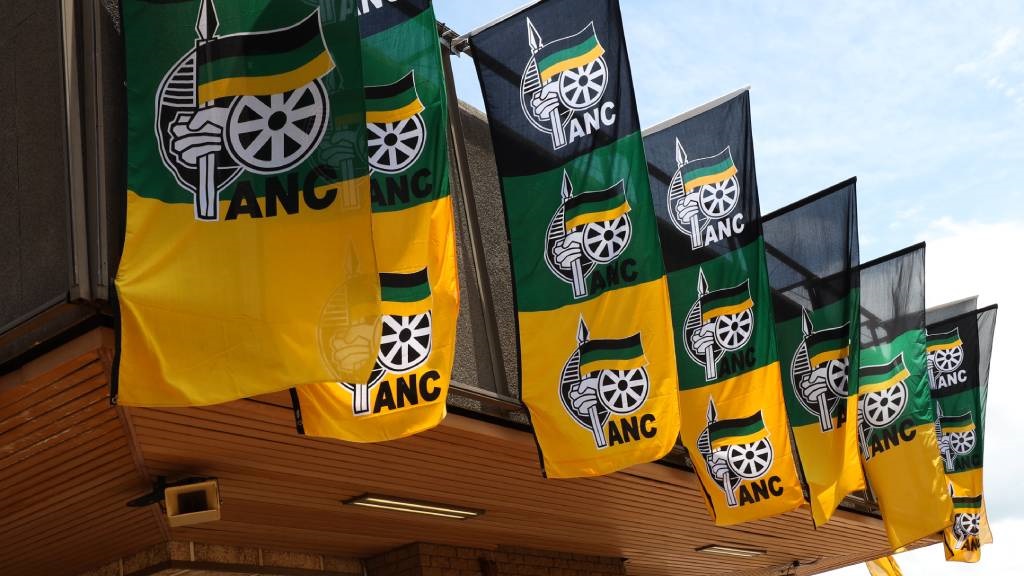
Two articles by two of his friends recently got Oscar van Heerden to reflect on the national question and how it related to minorities in South Africa.
Our politics are in an appalling state nationally, we disagree on everything. These are not civil disagreements; each side has no respect for the other. We are no longer partners in self-government; our politics is rather a form of war. (Dworkin)
This was the quote that came to mind as I read two of my friends' articles with regard to the national question and in particular the issue surrounding the minorities in our country.
Now, let me state categorically from the start, I do not like the term minorities, but hey, for the sake of argument.
My good friend and comrade Faiez Jacobs penned an article in ANC Today on 21 April 2023 in which he simply encouraged the governing party to take stock of their handling of the minorities in the party and, indeed, in the country. He affirms his belief that a more encompassing approach and a more dedicated approach towards such groupings might stand the ANC in good stead, especially in the upcoming general elections. I tend to agree with him.
However, according to another good friend and comrade, Patric Mellet, who responded to this article in an open letter on Facebook, the unforgivable mistake Jacobs made was to introduce the term "non-African minorities" when referring to coloureds, Indians and whites. This is evidently a big no-no for Mellet. And I can see why as he explains himself and takes us on a journey of history in the ANC.
Firstly, Jacobs stated that:
He concludes with:
I happen to agree with all of the above, though I recognise that perhaps Jacobs could have used the term non-black African wards.
The key message, however, should not be lost because of this particular choice of wording.
Mellet, on the other hand, condescendingly I would add, then stated that:
I say this is condescending because firstly, according to Mellet, one must be old in the ANC to fully grasp its history and must have attended certain conferences before being able to not be opportunistic and, how does he put it, "taking opportunity to climb up the ranks of the ANC".
Mellet then proceeds to give us a history lesson as if he is the purveyor of it.
I think we are fully aware of the history of this ANC, Mellet, contrary to what you might want to believe. We know full well the arguments that were there around race classification, well before Morogoro. In fact, when Abdullah Abdurahman's party, the African Political Party, came into being in 1902, it was there already. So, it's not as late as the Group of Eight. However, this period did shed light on the issue again in the 1960s.
I think the debate must continue, as well as the education around these issues. However, labelling, patronising and condescending gesticulations will not get us anywhere, Mellet.
My two cents on this very important topic is that I think we should address this matter from a very different angle and not get bogged down on semantics. In a paper, I wrote, The National Question for the Coloured People in the ANC Umrabulo publication, I encourage that we tackle this question from a class perspective.
If we look at deepening social theory and the practice on the national question, the nation-building project requires a class approach to understand coloured and Indian identities and consciousness, the object conditions and positions of these communities as well as their class structure. It is not possible to achieve any of the above tasks when you look at the ANC, who has a membership of more than 90% which is black African in the Western Cape.
The challenge is to open working-class politics and organisations to the coloured working class. If we want to get to grips with understanding the impact of the national question in the Western Cape and elsewhere, the route is to go through the coloured working class.
Another thought I would like to add is that the ANC has three key principles, non-racism, non-sexism and democracy. On the democracy principle, the governing party has made significant compromises over the years in the Constitution. Private property rights were guaranteed, the structure of the economy was largely left intact, and a TRC process was facilitated, among others.
On the non-sexism principle, the ANC always understood the triple exploitation element of women in the struggle, and hence a fundamental decision was taken in 2007 to introduce a quota principle in the ANC; hence, 50% of all leadership positions in the party, including parliamentarians, must be represented by 50% women representatives. Nothing to this extent has yet been introduced concerning the non-racism principle.
READ | Oscar van Heerden: While Mbeki's criticism resonated, he wasn't exactly being truthful
Perhaps it is time, in keeping with Jacobs' concerns, to seriously consider a quota principle for this principle as well in order to accommodate minorities in the party and give substantial effect to the non-racism principle too.
The additional approach in terms of understanding the dynamic of the national question, one must look at post-apartheid capitalism. The structural constraints as well as the obvious fundamental basic principle of capitalism which is to ensure profitability and weakening of the working class within the country.
South Africa is essentially a capitalist state which is presiding over three fundamental processes.
One: the restoration of capitalist profitability to a capitalist trajectory built on the back of cheap black labour. Two: the reinsertion of white-owned capital into the global economy at the expense of the national objectives, and, thirdly, the emergence of a black stratum of this capitalist class.
Such a state is complicating and delaying the resolution of the national question.
On the issue of class and race, Galvano Volpe's view was that the basis of the national question lay in the economic structure. This view raised the question of what are the contours of the new post-apartheid racial order and how do they reflect the changing labour supplies, the informalisation of work and the emergence of an African bourgeoisie. In what ways does liberal democracy conserve or restore or challenge the racial division of labour and racialised property relations?
In all of these, the ruling class has sought to shape the substance of the new South African nation and its state given that coloured and African workers largely depend on this white capitalist class for employment, and they have certainly made full use of exploiting those two groupings by pitting them against each other.
So, when we ask whether Afro-neo liberalism can resolve the national question, it correctly emphasises the urgency of tackling racial inequalities and racism within society but conveniently forgets that it is the very black working class that is at the receiving end of undefeated white racism and capitalist exploitation.
The real aristocrats, i.e. white monopoly capital, are left unchallenged by Afro-neo liberalism except insofar as to how they should be encouraged and given incentives to support the creation of a black capitalist class. This emerging class faction has typically not accumulated its own capital through the unleashing of productive processes but relies on special share deals, affirmative action, BEE quotas, fronting, privatisation and trading on one real piece of capital.
The concept of African leadership or hegemony has been described by the ANC as the hegemony of indigenous Africans over national life and character of the new nation. There are three problems with this formulation.
Firstly, African is implied so as not to consciously and deliberately include the Khoi-San people, which includes the history of an ignored but heroic anti-colonial resistance. This is to miss an important opportunity to embrace and reaffirm the African origins of large sections of coloured people.
Secondly, African is also used loosely to paper over class differentiation among the diverse African communities in South Africa.
African leadership can end up as a narrow nationalistic concept if it is not related to its class content. To be controversial, there's no doubt that the white communist Joe Slovo was a far better representative of black working-class interests than the black but capitalist Patrice Motsepe.
The third problem has to do with the imagery of a timeless pre-colonial African society which can be transmitted as a whole to a 21st-century capitalist South Africa. This has opened the doors for moribund feudal forces and practices to rear their ugly heads.
Under these conditions, black working-class unity, as the bedrock of nation-building, is far from a reality. Instead, the entrenchment of racial identities, mutual fears and mistrust are the order of the day. Hence, we have these parochial arguments from among our friends.
Let's hope that Mellet does not also see me and my arguments as opportunistic and simply climbing the ranks of the ANC.
- Dr Oscar van Heerden is a scholar of international relations (IR), where he focuses on international political economy, with an emphasis on Africa, and SADC in particular.*Want to respond to the columnist? Send your letter or article to opinions@news24.com with your name and town or province. You are welcome to also send a profile picture. We encourage a diversity of voices and views in our readers' submissions and reserve the right not to publish any and all submissions received.
Disclaimer: News24 encourages freedom of speech and the expression of diverse views. The views of columnists published on News24 are therefore their own and do not necessarily represent the views of News24.




 Publications
Publications
 Partners
Partners























